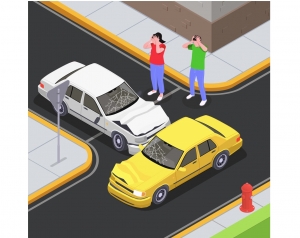Car accidents can result in a range of expenses, from medical bills and car repairs to lost wages and other related costs. You may be eligible for compensation if you've been injured or incurred expenses due to someone else's negligence.
Consulting with a car accident lawyer can help you understand your rights and options and guide you through claiming the compensation you deserve. But what does this entail, and how do you go about navigating the often-complex world of car accident claims?
We'll be discussing all of that and more in this article:
Types of Compensation
There are two main types of compensation you may be entitled to after a car accident:
Economic damages
These are damages that have a specific monetary value, such as medical expenses, lost wages, and property damage. Medical bills, for example, aren't just about that one hospital visit. They also include follow-up appointments, prescriptions, physio sessions, or even the cost of getting to and from those appointments.
If you're stuck at home recovering, you might also be losing paychecks. And if the injuries are serious enough to keep you out of work for the long haul, you could even be looking at a dent in your future earnings.
Then there's the damage to your ride. Sure, insurance might offer to fix it, but what about replacing personal items inside the car, like your laptop or even a smashed car seat? And if your car is totaled, how do you cover the costs while waiting for a payout?
Non-economic damages
These are damages that don't have a specific monetary value, such as pain and suffering. Maybe the accident has you scared to drive again, or you're losing sleep replaying what happened. If you've had to miss out on family activities, hobbies, or just the joy of living your life the way you used to, that matters too.
How to Claim Compensation
Start with your health, always. Even if you feel fine right after the crash, injuries like whiplash or internal damage might show up days later. Getting checked out right away is your first solid piece of evidence.
Once you've handled that, report the accident. Call the cops. Even if the damage seems minor, having an official report on file can save you a lot of headaches if things get messy later. And don't skip telling your insurance company either, but keep it simple. Just give the facts and don't apologize or say anything like you're okay, which could be twisted against you.
Once you've started the claims process, the first thing that happens is an investigation. Either the insurance company or your lawyer (or both) will dig into the details to figure out who's at fault and how much your claim is worth. This stage might feel slow, but it's all about building a solid case.
Next, you'll probably hear about a settlement. Insurance companies often want to wrap things up quickly, but that doesn't mean their first offer will cover everything you're owed. If you have a lawyer, they can push back and negotiate for what you really deserve. And if no agreement is reached, the claim might go to court.






